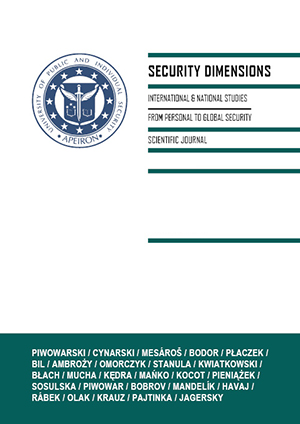Significance of polygraph examinations in so called difficult situations in Polish investigative practice
Significance of polygraph examinations in so called difficult situations in Polish investigative practice
Author(s): Piotr Herbowski, Dominika SłapczyńskaSubject(s): Security and defense
Published by: Wyższa Szkoła Bezpieczeństwa Publicznego i Indywidualnego “Apeiron” w Krakowie
Keywords: Polygraph examination;polygraph;preparatory proceeding;memory traces;
Summary/Abstract: In recent years there has been concern connected with the practice of collecting classic forensic traces in crime scenes. apart from this there are some problems concerning their accessibility. The main factor which affects the possibility of disclosing evidence negatively is the decreasing quality of forensic activities. Moreover, poorly trained police officers do not usually know how to use tactically the information content of forensic evidence. During the preparatory proceedings problems connected with small value of detection of classic evidence appear. Also the significance of afis and genom databases decreases and obtaining reference material is becoming difficult. in such situations law enforcement authorities do not have to be helpless because, while committing a crime, memory traces of this events are formed in the mind of a perpetrator. they can be revealed objectively by polygraph examination aimed at excluding and confirming a person’s connection with the event. in many cases, however, there is no alternative for polygraph, which was presented in this article.
Journal: Security Dimensions. International and National Studies
- Issue Year: 2015
- Issue No: 14
- Page Range: 68-76
- Page Count: 9
- Language: English

